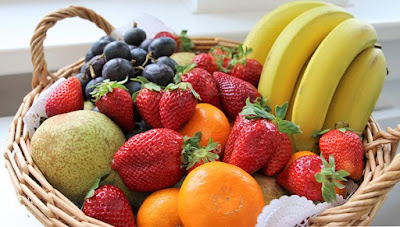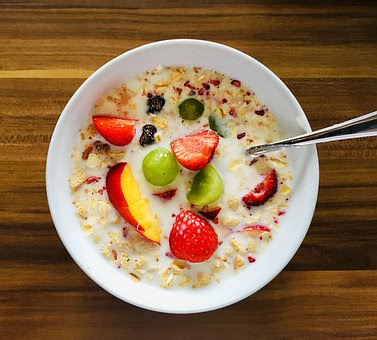Take Care of Your Liver With These 8 Foods
 |
| Take Care of Your Liver |
1 Garlic. Garlic is one of the foods that can help you increase your liver function. This is especially true when you have a buildup of toxins. It has antioxidant and anti-inflammatory substances. These support your blood's detox process to reduce an overload. This uses an essential amino acid called arginine. Its effects relax your blood vessels. It also reduces the pressure of this organ. Also, it gives you significant portions of vitamin B6 and Vitamin C. These are two essential nutrients that reduce cellular damage and the accumulation of cholesterol.
2 Olive oil. Olive oil is one of the "superfoods" that helps increase many aspects of your health. It has omega 3 fatty acids and vitamin E. Both of these are necessary for removing residues stored in your liver. They also inhibit cellular oxidation. Eating it in moderation controls your cholesterol. And, it increases your metabolism to reduce excess fat.
3 Green tea. Arginine Green tea is a healthy drink that promotes good liver function. It does this thanks to its high content of some antioxidants called catechins. These substances make part of the group called flavonoids. After being assimilated, they help to protect the tissue against toxic free radicals and toxins.
4 Grapefruit. Grapefruits don't just stand out because of their large amount of vitamin C. They also stand out because of their glutathione content. This substance is produced naturally in your liver. And, it's used in several important processes in your body like repairing your tissues. Each grapefruit can give you up to 70 mg of glutathione. Thanks to this, it's very useful for stimulating your enzymes during this process of detoxification.
5 Apples. This delicious fruit has high levels of pectin. This is a kind of natural fiber that helps support your digestion and get rid of toxins. Also, eating it helps regulate your blood's pH level. Also, it has a protecting effect against toxic residue that accumulates in this organ.
6 Lemon. Lemon's high content of vitamin C makes it a great ally for taking care and increasing your liver health. This antioxidant nutrient helps to convert the toxins into compounds that easily dissolve in water. This makes it easier to get rid of later. It also supports the decomposition process of fats and supports control of your cholesterol.
7 Avocados. Avocados are a prodigious fruit. Because of its high nutritional value, they can help to increase your heart, digestive, and liver health. It has high levels of glutathione. It gives you important amounts of vitamin C and E. These are two powerful antioxidants that counteract the damage caused by free radicals. If that wasn't enough, it has essential fatty acids. These are necessary for regulating your inflammation and cholesterol level.
8 Nuts. Nuts are a source of L-arginine. This is an essential amino acid that helps you to decompose the toxic residues stored in your liver. This substance, due to its dietary fiber and omega 3 fatty acids, helps you control excessive inflammation in your tissues and stimulates the cleansing process. Its regular consumption helps to control food cravings and controls your bad cholesterol (LDL). Are you worried about your liver health? Be sure to increase how much you eat the foods we mentioned. Remember to complement them with a balanced diet and lots of water and exercise...





